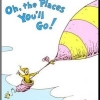-
Posts
120 -
Joined
-
Last visited
Reputation Activity
-
 spellbanisher reacted to zigzag in Advisor suggests not emailing POIs....thoughts?
spellbanisher reacted to zigzag in Advisor suggests not emailing POIs....thoughts?
If the program you're applying to specifically wants to know who you have gotten in contact with, it's in your best interest to get in contact with someone. If you feel worried about it, tell your advisor that this particular program requires or suggests it on the application itself (show them if necessary) and state that you understand the cold-email can be annoying but is perhaps a required irk of this particular program's admissions. See if your advisor has specific suggestions then, or just email this POI and explain your connection, your interest in the program, and that you'd initially been advised not to contact, but saw the part on the application form asking who you'd contacted, etc. Thank them for their time and try to take no more than 4-5 sentences to say it all. Maybe another if you follow up with "I understand you are probably very busy."
Being polite, concise, and honest will probably get you far, or at the very least you're going to be a rather minor annoyance on the scale of things that a potential POI will probably forget about if you didn't make any egregious errors. I contacted people at 4 schools. One POI said they weren't taking any PhD students so I saved myself $75 in application fees. One was polite but also busy traveling so not much was said (rejected later in the process), and the other two school whose POIs I emailed both accepted me. One POI at one of these places also told me to email and discuss my interest in the program to another POI at the department -- in fact, encouraged my contacting them.
You might get "pre-rejected" by a school for contacting a POI -- either because you're rude and memorably so, because they can't be bothered with potential students, or because they simply aren't taking students. I assume it's more likely that prospective students viewed as minor annoyances are just ignored rather than written into a "REJECT THEM" pile, but I tend to think the best of people. Even if that was the case, would you really want to work for them -- especially when the school predicts and/or expects you'll have made such contact?
Your advisor is right that your main concern is the actual application, but contacting a POI should take about 15 minutes tops, especially if all you're going to say is:
"Hello Dr./Professor ______, My name is ____ and I'm an MA student in ______ at _______ University advised by ________. I'm hoping to apply for a ____ PhD [program degree] at ______ for this upcoming fall, and was particularly interested in your work in ______. I am interested in/am researching _______, and saw that the application asked who I had gotten in touch with at the department, and so I thought I should email professors with whom I shared research interests. I am interested to know if you are potentially accepting or looking for PhD students in the upcoming year [, as I would enjoy working on _____/hope to work on _____/ would like to do _____/think ______].
I understand you are busy, and thank you for your time.
Best,
___________.
Alternately: Hello, Dr./Professor,
I am an MA student in _____ at ____ University. My advisor, Dr. ______, recommended I apply to ______ University for a PhD due to my interest in researching ______, [and suggested I might fit under your research interests/look into what you do/etc.] After some research of my own, I became interested in your work on _____, and was wondering if you[/the department] were potentially able to take on doctoral students in the fall.
Thank you for your time,
_______.
Which is more or less the same thing I said in an actual email:
Dear Professor/Dr. ________,
My name is _________ and I am a ____________ at _______ University. One of my professors, Dr. _____ attended the ____________ for their PhD some time ago, and after some discussion we agreed the university seems like a potential ideal fit for my graduate studies. I was most interested in the ________ and the emphasis on _______. In particular, your work in ________ and _______ fascinated and intrigued me, as I am currently [in a class on related thing] ____________, and doing research on _______. I was wondering if you were taking or looking for doctoral students for Fall of _____. Thank you for your time, _______. It's such a short and formulaic email that honestly it could be done in between breaks or classes and should in no way cut into the work you put into your applications. If you spend more than 30 minutes trying to write one, you're honestly stressing out over what is essentially a short cover letter/a 3-4 sentence statement of interest and should just let it go and focus on something else. If you already have a SOP or have drafted it, just use the information there to fill in blanks. -
 spellbanisher reacted to GeoDUDE! in Best approach to asking a professor for a letter?
spellbanisher reacted to GeoDUDE! in Best approach to asking a professor for a letter?
Don't you have the answer in your own post?
-
 spellbanisher reacted to dan0075 in What piece(s) of advice would you give to new TAs?
spellbanisher reacted to dan0075 in What piece(s) of advice would you give to new TAs?
There's a lot of great advice here. The only thing I would add is that I learned that you have to let go of wanting the students to like you. Of course you want them to respect you and to create an environment where they feel safe to express themselves and that they're being evaluated and graded fairly. That said, be careful of trying to be so laid back that they lose sight that the TA/student relationship is a strictly professional one.
Be friendly, yes, but make it clear that when in the classroom you are not their peer (despite your being a student as well) but their instructor. I certainly use humor a great deal in my classes, but I work to set a disciplined tone from the beginning.
As much as it may seem that they want the freedom from boundaries, I don't believe this to be true. Not that student feedback is the most reliable barometer of one's effectiveness, but I have found I have gotten the best feedback from the classes from whom I least expected it, i.e., the classes where I tended to have to take a more hard line approach.
Keep in mind that no matter how affable you try to be and how invested you are in their success, there are going to be students who don't like you. We've all had those teachers that we talked about behind their backs. You're going to be that teacher to at least some of your students. Don't sweat it. It comes with the job.
-
 spellbanisher reacted to Between Fields in What piece(s) of advice would you give to new TAs?
spellbanisher reacted to Between Fields in What piece(s) of advice would you give to new TAs?
I use a binder for each section I'm teaching, as a previous poster mentioned, but instead of lecture notes, I have the course roster and a page for each student. I add their rubrics and research proposals into it as I get them, too. Anytime I meet with a student, I turn to their page and take a few notes. Students love it when you remember what they said, and you'll quickly find that even though you think you know your students' names, you're never going to remember which student asked for what in office hours, unless you write it down. I also do my attendance on paper in this, and keep copies of the syllabus and assignment sheets. Don't let them sucker you. Students will have trouble adjusting to college (especially in the first semester), but when a student comes up with sob story after sob story, refer them to the appropriate campus offices (disability services, counseling, etc.), because if you keep accommodating them without documentation, you're going to run into issues. This is going to sound petty, but don't loan books (or anything, really) to students. I let one of mine use a very expensive Greek history book my first semester teaching because the library didn't have a copy, and it came back with creased pages, a few stains, and a torn book jacket. Suffice it to say, it made it very difficult to be objective on his paper. When you're meeting with students, leave your office door open. I'd say leave it open, even if they ask for you to close it. Grad students are vulnerable to false accusations, and I know that most students would never do anything of that nature, but the wife of caesar must be beyond repute, right? (This is a tip I got from my supervisor.) If you're meeting with a student and you're concerned about their reaction to what you're going to say (i.e. if you're accusing them of plagiarism or something of that nature), it's ok to have a colleague with you "grading/reading/sleeping" in the corner, so that there's a third party witness. I did this when I had to confront a student about falsifying rough drafts. Don't assume that students can read, not even at an SLAC. Give your assignment a few different ways: verbally, online, and in paper. They still won't read or listen, but at least you can cover your bases. Monitor your international students' progress in the first few days of the course. Make it a point to talk to them and try to get a feel for their ability level in English, especially if you're teaching an English course. This really helped me my first semester, because I discovered that a student had skipped the required pre-req for international students to get into first-year composition, and had I not talked to the department, I probably would have had to fail her. (She got a very low grade the second semester, even with that pre-req...) At the PhD and MA level, most of us are not equipped to deal with TESOL issues, so become friends with the professors in your department who are certified, and get all the resources you can, if you need them. -
 spellbanisher reacted to Meanyus in What piece(s) of advice would you give to new TAs?
spellbanisher reacted to Meanyus in What piece(s) of advice would you give to new TAs?
Yeah, I would wholeheartedly disagree with being nice on grading.
I've stopped feeling bad about poor grades. It was extremely difficult for me as a 4.0 student to understand that some of my students were perfectly happy with a C in the class. It's a tough pill to swallow when they just don't care that much. However, I make sure to take the time out to explain to students the differences between A, B, C, and D work so that they can choose for themselves how much effort they want to put in. I teach public speaking, so it's fairly cut and dry, but I am able to finish a vast majority of my grading the same day things are turned in. It leaves me with a lot of time to do my own work not having to worry about tracking assignments for my students. Even if you need longer than that, I do suggest blocking out a period of time to just knock it out all at once so that you can grade fairly and efficiently.
I do agree with geeking out a bit. You might be saddled with a horribly boring subject matter but your excitement at least makes it more bearable for the students and gets them actively involved.
Be self-reflexive. Mid-term evaluations are a great tool for monitoring how well you class is going. I use it to ask my students about both what is working and what is not working. I then send a lengthy email responding to it letting them know what things we can change and what things we can't. Constantly seek to improve yourself, whether you are a great teacher or not.
Take it seriously but don't spend all your time worrying about it. I thought about dropping out of grad school because of an A- in my second semester. I now realize how silly that is. I have one student every semester who absolutely hates my teaching style. I do my best to try and accommodate them but if my style works for 47/48 students, then I don't really worry that one person thinks I am the worst teacher they have every met and I am incompetent and don't know how to teach and that they can't believe I even got this job.
Lastly, ask for help when you need it. If you are entering a M.A. program, they are really just teaching you how to write at a higher level and easing you into teaching. I'm entering my Ph.D. program next year so I can't speak on that.
Good luck!
-
 spellbanisher reacted to TakeruK in What piece(s) of advice would you give to new TAs?
spellbanisher reacted to TakeruK in What piece(s) of advice would you give to new TAs?
I agree that TAs should be nice and not overstep their "powers". But I definitely do not agree that we should be nice with grades and only give grades we would also want. Remember that TAs are graduate students who, on average, got into grad schools because they tend to do better in courses than the average undergraduate student. Therefore, it's not surprising that some of your students will do fairly poorly in certain classes and I would say that you should not be afraid to fail or give a D grade if that is indeed the quality of their work.
-
 spellbanisher got a reaction from Chai_latte in Tell people you are "phd/ masters student" or " graduate student?
spellbanisher got a reaction from Chai_latte in Tell people you are "phd/ masters student" or " graduate student?
I say I am a panhandler, and then ask for money.
-
 spellbanisher reacted in Live with family or on my own for Grad School?
spellbanisher reacted in Live with family or on my own for Grad School?
Live on campus. Debt is overrated. People think too much about the future. Family is a toss up. We're randomly assigned to another person when we're born. That doesn't mean they don't suck. Live your life. Move out. Worry about the debt later.
-
 spellbanisher got a reaction from seeingeyeduck in Tell people you are "phd/ masters student" or " graduate student?
spellbanisher got a reaction from seeingeyeduck in Tell people you are "phd/ masters student" or " graduate student?
I say I am a panhandler, and then ask for money.
-
 spellbanisher got a reaction from WriteAndKnit in Tell people you are "phd/ masters student" or " graduate student?
spellbanisher got a reaction from WriteAndKnit in Tell people you are "phd/ masters student" or " graduate student?
I say I am a panhandler, and then ask for money.
-
 spellbanisher got a reaction from ahlatsiawa in Tell people you are "phd/ masters student" or " graduate student?
spellbanisher got a reaction from ahlatsiawa in Tell people you are "phd/ masters student" or " graduate student?
I say I am a panhandler, and then ask for money.
-
 spellbanisher got a reaction from gellert in Tell people you are "phd/ masters student" or " graduate student?
spellbanisher got a reaction from gellert in Tell people you are "phd/ masters student" or " graduate student?
I say I am a panhandler, and then ask for money.
-
 spellbanisher got a reaction from bakalamba in Tell people you are "phd/ masters student" or " graduate student?
spellbanisher got a reaction from bakalamba in Tell people you are "phd/ masters student" or " graduate student?
I say I am a panhandler, and then ask for money.
-
 spellbanisher reacted to MakeYourself in Why does Big Bang Theory piss off academics?
spellbanisher reacted to MakeYourself in Why does Big Bang Theory piss off academics?
Dang, this post is a lot of wasted effort.
-
 spellbanisher reacted to thedig13 in Why does Big Bang Theory piss off academics?
spellbanisher reacted to thedig13 in Why does Big Bang Theory piss off academics?
Basically, this. Obviously, it's a comedy, so you have to make fun of the characters, but BBT does it in a way that degrades the characters instead of humanizing them.
Also, if you liked Futurama and Community, I'd recommend HBO's Silicon Valley and FX's Archer.
-
 spellbanisher reacted to Usmivka in Why does Big Bang Theory piss off academics?
spellbanisher reacted to Usmivka in Why does Big Bang Theory piss off academics?
Bialik has a neuroscience PhD, but is not a practicing scientist. She also holds pretty anti-science views--she's vocally anti-vaccine. Having a PhD doesn't mean that she is an ideal celebrity ambassador for science, and in fact her degree may do more damage than good as it gives perceived weight to an anti-science argument outside her area of expertise. Her arguments on public platforms undercut scientific experts who argue differently but are not in the popular spotlight, and makes people think that some scientists or fields are less legitimate or rigorous than others. Further, the views she advocates have seriously negative public health consequences--consider, eg, the rapid rise of measles in the US over the last decade largely driven by the anti-vaccine movement.
From the CDC:
"Ninety percent of all measles cases in the United States were in people who were not vaccinated or whose vaccination status was unknown....Clusters of people with like-minded beliefs (against vaccinations) can be susceptible to outbreaks when the disease is imported, and it's one of the most contagious diseases." (http://www.cdc.gov/media/releases/2014/t0529-measeles.html)
Moral of the story: if you don't like vaccines, don't go abroad. Also, you are effing up herd immunity and endangering others who can't take a particular vaccine for valid medical reasons (eg infancy, pregnancy, otherwise immunocompromised--here is a handy infographic: http://www.vaccines.gov/basics/protection/).
PS I've never watched the show, but someone else complained to me that it is ridiculous that a character would be working as a waitress to pay for graduate work in microbiology--no one is admitted to such a program without external or departmental funding. I'm not sure that qualifies as pissing anyone off, but it is a complaint by an academic about the show.
-
 spellbanisher reacted to Roquentin in Are grad students even human?
spellbanisher reacted to Roquentin in Are grad students even human?
Are grad students even humans?
No. They are odd humans.
-
 spellbanisher reacted to Scarf in the wind in Are grad students even human?
spellbanisher reacted to Scarf in the wind in Are grad students even human?
Yup, I'm human. Don't need superpowers or be an alien when I've been trained by Batman.
-
 spellbanisher reacted to spectastic in question for bicyclists
spellbanisher reacted to spectastic in question for bicyclists
about as difficult as learning to ride a bicycle
-
 spellbanisher got a reaction from tenguru in Design Your Own Seminar
spellbanisher got a reaction from tenguru in Design Your Own Seminar
Seminar Name: The US during the Age of Empires
In the period from 1860 to 1930, many Europeans countries, along with North America and Japan industrialized. In turn, these countries went out and colonized much of Asia and Africa. The United States is often seen as anomalous industrial power in this period. By the early twentieth century it had the largest economy in the world, but in comparison to its economic predominance, its empire was relatively small. This seminar explores how international contexts and consciousness shaped US development in this period.
Readings
1. Rethinking American History in a Global Age Thomas Bender
--The first book is a series of essays that explore methodologies for globalizing American history.
2. Blessed Among Nations: How the World Made America Eric Rauchway
--In Blessed Among Nations, Rauchway does not argue against American exceptionalism. Instead, he argues that the unique place with the global economy explain unique American institutions of warfare and welfare in this period. These institutions, however, left the United States ill prepared to lead the global economy after the European collapse following World War I, and Rauchway argues that poor US global leadership in the 1920s contributed to the Great Depression.
3. Modernity and National Identity in the United States and East Asia, 1895-1919 Carol Chin
--This book is a comparative history looking at how China, Japan, and the United States forged their national identities in the period between the first Sino-Japanese War and World War I. Chin argues these nations all grappled with the same issue: the push to embrace a universal standard of modernity while maintaining their distinctive cultural identities. Their understandings of national identity were shaped by how they thought about their place in the world.
4. The End of American Exceptionalism: Frontier Anxiety from the Old West to the New Deal David Wrobel
--Another book that deals with American identity, the End of American Exceptionalism deals with how Americans dealt with the perceived exhaustion of the frontier, and with it, the basis of their cultural distinctiveness. Solutions to this problem included creating "external frontiers," which entailed trade and empire.
Also: Global West, American Frontier: Travel, Empire, and Exceptionalism from Manifest Destiny to the Great Depression David Wrobel
--Through his analysis of Travel Writings about the American West, Wrobel explores “the west in the world and the world in the west” in the nineteenth and twentieth centuries.
5. The New Empire: An Interpretation of American Cultural Expansion, 1860-1898 Walter Lafeber
--In The New Empire, Lafeber shows how economic causes drove America to become a world power in the late nineteenth century.
6. Blood of Government: Race, Empire, the United States, and the Philippines David Kramer
--The Philippines was the only formal colony of the United States. Kramer's book looks at how America's experience with empire shaped its own notions of race during this period.
7. Financial Missionaries to the World: The Politics and Culture of Dollar Diplomacy, 1900 to 1930 Emily Rosenberg
--In Financial Missionaries to the World, Rosenberg shows how private loans were used to export American civilization and to extend American hegemony over foreign governments. She also explores the domestic debates over foreign lending.
Also: Spreading the American Dream: American Economic and Cultural Expansion, 1890-1945 Emily Rosenberg
--From the book description: “In examining the economic and cultural traits that expressed America's expansionist impulse during the first half of the twentieth century, Emily S. Rosenberg shows how U.S. foreign relations evolved from a largely private system to an increasingly public one and how, soon, the American dream became global.”
8. All the World's a Fair: Visions of Empire at American International Expositions, 1876-1916 Robert W. Rydell
--From the Book Description: “Robert W. Rydell contends that America's early world's fairs actually served to legitimate racial exploitation at home and the creation of an empire abroad.”
9. Atlantic Crossings: Social Politics in a Progressive Age Daniel T. Rodgers
--This book explores how American progressives borrowed from European models of reform.
10. Consumer's Imperium: The Global Production of American Domesticity, 1865-1920
--From the inside flap: “Shifting attention from exports to imports, from production to consumption, and from men to women, Hoganson makes it clear that globalization did not just happen beyond America’s shores, as a result of American military might and industrial power, but that it happened at home, thanks to imports, immigrants, geographical knowledge, and consumer preferences.”
11. Bound in Twine: The History and Ecology of the Henequen Wheat Complex for Mexico and the American and the Canadian Plains, 1880-1950 Sterling Evans
--Farming and wheat, the basis of the heartland. Nothing could be more American. Industrialization was often seen as a shift away from the more wholesome activity of farming. As Bound in Twine shows, wheat production was embedded within a transnational and international economic system of dependence.
12. Origins of the Federal Reserve System: Money, Class, and Corporate Capitalism, 1890-1913 James Livingston
--In this book, Livingston argues that the movement for central banking in the United States reflected an emergent class consciousness of a new corporate managerial elite that sought to make itself the authority on all economic issues. Special attention will be paid to the arguments about the necessity of central banking for international trade and investment.
Assignments: Weekly 2-3 page informal reviews. Each student will lead at least one and most likely two class sessions. A final 15 page historiographic paper focusing on a particular theme (economics, politics, society, gender, race, empire, trade, dependency, etc).
-
 spellbanisher reacted to Maleficent999 in End of term sads
spellbanisher reacted to Maleficent999 in End of term sads
This doesn't sound bizarre to me at all. My research interests focus largely around bdsm and the kink scene. When "kinksters" interact in an intense scene, usually a scene between a Dom and sub, the sub can often experience "sub drop". The Dom can experience a drop too but it is less talked about. Stay with me here, when the sub comes down from such an intense high/emotional/extreme place they can very easily fall into a kind of depression. Experienced kinksters know that aftercare is an important part of a D/s scene. Aftercare means both physical, mental, and emotional care so that the drop isn't too intense and damaging. I think you're experiencing a kind of drop like this. Maybe, grad drop? Haha but seriously, you're coming down from a very intense place. It's important you take care of yourself. That might mean taking a few days to process everything and just chill out. It might mean talking to loved ones or doing some fun things you've been missing, maybe all of the above.
Just my $.02. I'm no expert but I definitely don't think what you're feeling is out of bounds.
-
 spellbanisher reacted to uromastyx in Before you ask "WHAT ARE MY CHANCES???"...
spellbanisher reacted to uromastyx in Before you ask "WHAT ARE MY CHANCES???"...
The GRE is often the crux of this matter. May I say:
the only thing worse than "My GRE scores are V145 & Q147. What are my chances at Stanford?"
is "I got V170 & Q168. Should I retake??"
-
 spellbanisher reacted to bakalamba in Where should I apply for 2015 PhD?
spellbanisher reacted to bakalamba in Where should I apply for 2015 PhD?
I can't really speak to how your GRE or GPA will affect your admission, but I'd suggest worrying more about fit with the program, whether it's in the top 10, 11-25, etc., and crafting your application around a specific focus that matches the department you're applying to. I think your work experience and research background will help make up for a low undergrad GPA and GRE, to a point. I think fit is a big deal, particularly with PhD.
I'm also interested in international education policy, but in a different continent, so the programs I applied to last year tended to have a focus on that area. Apparently there's a historical divide within education schools, which at some point decided to focus on various regions, so you might find this reflected in the schools that you're interested in. I didn't pay too much attention to ranking, but rather used my connections to see which faculty was working in my area, and also asked these faculty if they recommended other programs (surprisingly, most responded well to this and dropped names of other faculty members and programs). I also looked for a strong area studies program at the University.
I'd be happy to share what I know about international ed policy programs - which ones are you looking into? Some of the schools I looked into and applied to included Michigan State (strong ed policy with some international work, great funding), Minnesota (bias: I'm going here, however it has a strong African focus), Wisconsin Madison (strong critical focus, cultural studies, poor funding), Stanford (strong, competitive), Pittsburgh (rebuilding their international program and restructuring funding, may change for next year), University of Washington, Penn State, Indiana Bloomington, UCSB (don't know much about these last four but they all have programs in international education, comparative education, or cultural foundations).
-

-
 spellbanisher got a reaction from hj2012 in Do GRE Scores affect funding? (Chinese history/East Asian Studies)
spellbanisher got a reaction from hj2012 in Do GRE Scores affect funding? (Chinese history/East Asian Studies)
The University of Oklahoma offered me the hoving fellowship, which is one of their several university wide fellowships and second best offered in the humanities. UC Davis has the provost fellowship in the humanities, social sciences, and arts, which is just a one year fellowship offered to 50 students (split between first years and dissertation years), but I wasn't offered that. I didn't apply to any really prestigious schools, but between getting the second best fellowship at Oklahoma and none at all at Davis (and getting waitlisted by George Mason and rejected by Rutgers), I figure I wouldn't have gotten into a more prestigious schools anyways. My ego, however, notes that I was eventually offered admission by George Mason and that Rutger's never received the official transcripts from my MA program.
It seems pretty standard at elite private universities and a few flagship public universities for the general stipend to be 20-30k a year (depending on the location), 3-5k for summer research, with 2-3 years of service (i.e. working as a teaching assistant or instructor) and 2-3 years of no service. I've seen Berkeley and UCLA offer comparable funding packages, but I don't know if those are standard. The other UCs rely much more heavily on teaching assistantships, but to get much beyond that you'd have to win university or external fellowships. I don't know if Harvard-Princeton-Columbia-Stanford offered unfunded phd admissions(I know Stanford does for its MA), but I know that some prestigious flagships, such as the University of Wisconsin-Madison, admit a lot of students without funding.









